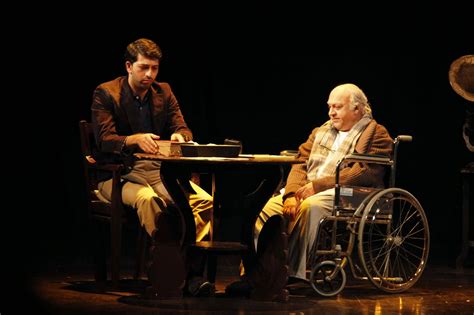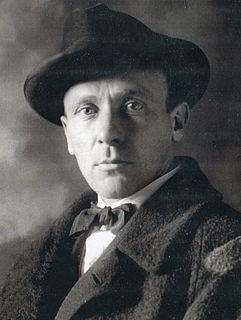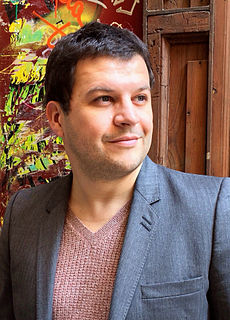A Quote by Mitch Albom
As long as we can love each other, and remember the feeling of love we had, we can die without ever really going away.
Related Quotes
We do not know what awaits each of us after death, but we know that we will die. Clearly, it must be possible to live ethically-with a genuine concern for the happiness of other sentient beings-without presuming to know things about which we are patently ignorant. Consider it: every person you have ever met, every person you will pass in the street today, is going to die. Living long enough, each will suffer the loss of his friends and family. All are going to lose everything they love in this world. Why would one want to be anything but kind to them in the meantime?
Love and ever more love is the only solution to every problem that comes up. If we love each other enough, we will bear with each other's faults and burdens. If we love enough, we are going to light that fire in the hearts of others. And it is love that will burn out the sins and hatreds that sadden us. It is love that will make us want to do great things for each other. No sacrifice and no suffering will then seem too much.
At that moment he knew what his mother was thinking, and that she loved him. But he knew, too, that to love someone means relatively little; or, rather, that love is never strong enough to find the words befitting it. Thus he and his mother would always love each other silently. And one day she--or he--would die, without ever, all their lives long, having gone farther than this by way of making their affection known.
If love is the soul of Christian existence, it must be at the heart of every other Christian virtue. Thus, for example, justice without love is legalism; faith without love is ideology; hope without love is self-centeredness; forgiveness without love is self-abasement; fortitude without love is recklessness; generosity without love is extravagance; care without love is mere duty; fidelity without love is servitude. Every virtue is an expression of love. No virtue is really a virtue unless it is permeated, or informed, by love.
Love leaped out in front of us like a murderer in an alley leaping out of nowhere, and struck us both at once. As lightning strikes, as a Finnish knife strikes! She, by the way, insisted afterwards that it wasn't so, that we had, of course, loved each other for a long, long time, without knowing each other, never having seen each other.
In the past seven years of love-making he had heard the words "I love you" so many times: from the mouths of widows and children, from prostitutes, family friends, travelers, and adulterous wives. Women said "I love you" without his ever speaking. "The more you love someone," he came to think, "the harder it is to tell them." It surprised him that strangers didn't stop each other on the street to say "I love you".
The last page of [Lincoln in the Bardo] - without giving too much away - involves somebody entering somebody else. Not in a sexual way. But it says one of the simplest things you could ever say, which is that we must try and be inside each other. We must have some kind of feeling for each other and enter into each other's experience.
They were now both ready, not to begin from scratch, but to continue with a love that had survived for thirteen years in hibernation. They were no longer travellers without baggage. They were no longer twenty. They'd both been around the block a bit and had suffered without the other. They'd both lost their way without the other. Each had tried to find love with other people. But all that was now finished.





































